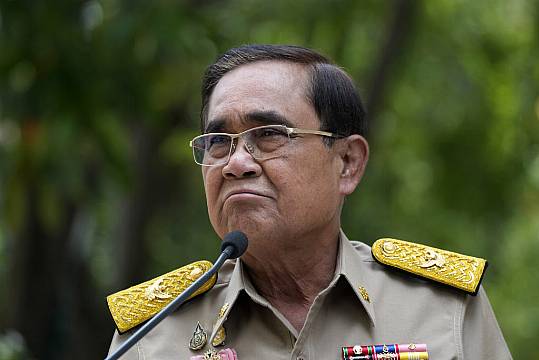Thailand’s parliament was dissolved on Monday by a government decree, setting the stage for a May general election, which has the potential to reduce the military’s influence in politics.
The dissolution, just a few days before the end of the four-year term of the House of Representatives, was initiated by Thai prime minister Prayuth Chan-ocha, who is seeking a fresh mandate in the vote provisionally set for May 7th.
The election will pit the opposition Pheu Thai party, backed by billionaire populist Thaksin Shinawatra, against parties representing the conservative establishment, spearheaded by the military.
The leading Pheu Thai candidate is Mr Shinawatra’s daughter, Paetongtarn Shinawatra, who is a strong favourite in opinion polls.

If elected, she would be the fourth member of the Shinawatra family to be prime minister in the past two decades.
Her father held office in 2001-2006, and Mr Shinawatra’s sister, Yingluck, in 2011-2014. Both of them were toppled by military coups.
Mr Shinawatra’s brother-in-law Somchai Wongsawat served in the office briefly in 2008 before he was removed by a court ruling disbanding the People’s Power Party.
Mr Chan-ocha is a former general who led the 2014 coup and is facing a challenge not only from Pheu Thai but also from his longtime comrade-in-arms and deputy prime minister, Prawit Wongsuwan.
He was the declared candidate of a second military-backed party.
Mr Chan-ocha came to power again as head of a coalition government after the 2019 election.
More than 52 million of the country’s population of more than 66 million are eligible to vote across 400 constituencies.
Four hundred seats will be determined by first-past-the-post races in each constituency.
A separate party preference ballot will seat the other 100 members of the House of Representatives from national party lists.







